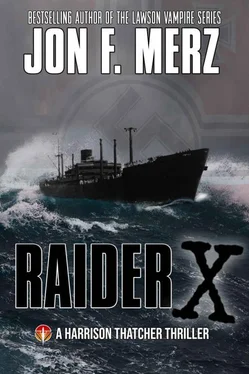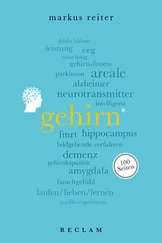Or dead.
Thatcher sighed and sipped the coffee, finding it too bitter until he dumped the sugar in. Then it was palatable. He sipped the drink and shook his head finally. There was no way he could do what Hewitt did. He couldn’t bring himself to send anyone out into near-certain death. But then again, Thatcher preferred only ever relying on himself for as much as he could.
It was why he’d left the family behind. And all its money.
He sighed and looked at the coffee cup before him. There was a time, he recalled, when a cup like this wouldn’t have been fit for him. They used to summer in Newport, near the Cliff Walk built along the sea and enjoy tea every afternoon at one of the hotels. The simplicity of the daily event provided an occasion to revel in the fact that everyone around them was swimming in money procured when their ancestors had helped create the industrial revolution within the United States. There were Rockefellers and Rothschilds and other members of that elite group circulating around the area and one couldn’t help but appreciate the lifestyle that the family money afforded them.
Tea time would conclude and the men would make their way to the club rooms for cocktails. It was here that Thatcher had learned to appreciate the intricacies of crafting a fine drink and all that it entailed. He heard more business deals being conducted over a drink than he ever had on a golf course. He’d mentioned it once to his father who had sniffed at the idea.
“Real men don’t golf. That idea is flouted by imposters who attempt to look wealthier than they actually are.”
It had made little sense to Thatcher. So he pressed his father for more details. The elder Thatcher had appraised his son with one of his withering looks that told his son that he’d asked something quite foolish.
“Golf is reserved for those who have never attempted daring in their miserable lives. The game is just that: a game. The drink and everything that it entails is reserved for the doers who are willing to risk it all. Tell me what risk there is to hitting a ball into a tiny hole? Are they practicing their sexual acumen? Are they simply bored?” His father had sipped his own drink at that moment and then held the glass up as if to worship it all the more. “But this… there is a simplicity and yet it unfolds with all the complexities of life and death. I can propose many things and dare even more while in the throes of a fine cocktail. Fortunes have been made and lost over drinks. Never over golf. Don’t ever get involved in such a ludicrous pasttime as it. A man’s worth isn’t defined by how many strokes he can shave off of his game; it is measured in how much he is willing to dare and risk it all. Golf is neither.”
Thatcher sighed as he took in another sip. He would have probably been willing to kill for one of those finely-crafted cocktails at the moment. But then again, at least he’d dared and risked it all as his father had espoused. Thatcher grinned in spite of himself. His father had always loved a daredevil. He used to take Thatcher to the barnstorming shows as a child, pointing out how the pilots were literally risking their lives for the approval of the crowds. And as much as his father had renounced Thatcher for leaving the family, there was part of him that knew his father probably had a level of grudging respect for what Thatcher had done: he had risked it all.
He probably wouldn’t be thrilled to learn that I’ve been fleecing wealthy dowagers of their trust funds and the like, thought Thatcher. But then again, nobody’s perfect.
And now his son was a spy for the British. Thatcher shook his head. There had to be some degree of respect in that, didn’t there? Perhaps when the war was finally over, Hewitt would allow Thatcher to return home where he could inform his father of everything that he’d been able to accomplish in the name of stopping Hitler and his war machine from taking over the world.
That was, if he managed to survive.
Sitting there in the cabin, Thatcher realized for the first time that he actually missed his family. As dysfunctional as it was. He missed the dinners and the summers and the holidays. It hadn’t been the same since he’d left and while he’d had more adventures than he probably deserved, Thatcher missed the useless drama of finding out that his aunt had been seen cuddling up with so-and-so’s husband or something equally un-earth shattering.
He finished his coffee and set the mug back down on the tray. He wondered if Cyra was feeling any better today now that she’d had a full night to sleep and recover. He hoped she was because it was imperative that Thatcher find out what her role — if any — was in the death of Captain Adamson. If he couldn’t then Schwarzwalder would contact the Gestapo. And if that happened, Thatcher’s life was going to get a whole lot more awful than it currently was.
He had no desire to see that happen. And he certainly didn’t want to have to endure any sort of torture that he knew they were capable of inflicting.
He rose from the small table and was about to knock on the door to let Steinkopf know he was finished when he heard shouting from outside his cabin door. Then an alarm sounded somewhere else on the ship.
What in the world was going on?
Steinkopf opened the door before Thatcher had a chance to. “Something is wrong in the engine room. Come with me.”
Thatcher needed no further encouragement and followed Steinkopf down the corridor and descended into the lower bowels of the ship. Thatcher’s knowledge of ships was limited to the times he went sailing on the bay back home. He was completely out of his element in this environment, but he understood that anything wrong within the engine compartment was cause for great concern.
As they descended the stairs, a terrible smell issued up from below and greeted them. It was so revolting that it made Thatcher almost retch and vomit his entire breakfast. But he bit back on the rising tide of bile in his throat and continued on. Steinkopf muttered in German as they made their way ever deeper into the ship. They passed other sailors coming the opposite way looking ashen-faced and pale. Whatever was down there was apparently spooking them all.
Finally, a blast of heat hit them as they ventured further. Thatcher kept with Steinkopf who seemed driven to reach the engine room. Around them, the alarm was still blaring away and it echoed in Thatcher’s ears like some never-ending bird chirping away on an early morning when you wanted to sleep in.
He smelled the heavy copper on the air before he saw the sight before him.
Steinkopf reeled to a halt, blanched, and then turned to one side to vomit. Thatcher took advantage to get his first look at the engine compartment.
It looked like a slaughterhouse. The walls of the entire compartment were smeared with deep crimson that Thatcher knew was human blood. Flesh and gristle and guts draped about the place like a sort of sick Christmas festivity scene. Thatcher’s eyes couldn’t process the destruction. As the engines continued to churn in the background, the pieces of humans that adorned the walls lay silent, still dripping their various liquids onto the walls and floors, making everything slick with viscous juices that had no business being outside of the human body.
“What is he doing here?”
Thatcher snapped back to the moment as he recognized Schwarzwalder’s voice booming up from the floor of the compartment. Steinkopf recovered himself quickly, but before he could say anything, Thatcher took the offense and addressed the Captain.
“I insisted he bring me here. It’s my fault.”
Schwarzwalder frowned and then shrugged. “Well, as you can see, we have… this.” He gestured for Thatcher to come down and join him.
Читать дальше












